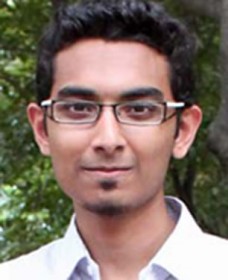
11:30 am to 12:00 am
Event Location: GHC 2109
Bio: Abhinav Valada is a Research Assistant in the Field Robotics Center at Carnegie Mellon University. He is working on the Distributed SensorWebs project under Dr. George Kantor. His current research interests focus on algorithms for multi-agent coordination, scheduling and control. He received a Bachelor of Technology degree in Electronics and Instrumentation Engineering from VIT University in 2010. He was a Visiting Scholar in the FRC during spring 2010.
Abstract: Wireless Sensor Networks (WSN’s) is a field that has attracted the attention of many researchers these past few years. The potential applications of wireless sensor networks are immense. They are used for various applications such as habitat monitoring, agriculture, nuclear reactor control, security, etc. In this talk, I will describe the new multi-hop routing protocol that I designed for distributed sensing applications. The aim of this research was to adapt flat and hierarchical architectures to create a new hybrid that draws on current protocol theories. The protocol uses a hybrid network structure to achieve scalability and is source initiated along with time driven reporting to reduce the number of packet transmissions. The protocol incorporates a link quality estimation algorithm, which makes sure that only nodes with high quality symmetric links are chosen for routing. Route selection is calculated using both hop count and link quality as routing metrics. The protocol is designed such that it is computationally simple, reliable, energy aware, does not impose any special hardware prerequisites and most importantly credible. This protocol was implemented on the CMU SensorWeb hardware and its credibility was verified. The CMU Sensor Web is used in precision agriculture applications, where real time data of climatological and other environmental properties are sensed and control decisions are taken based on it to modify them. I will also talk about the field tests that we performed and the challenges that we faced.
